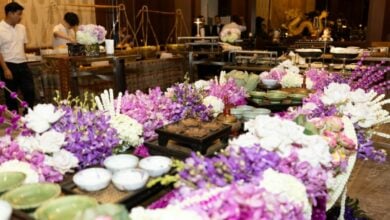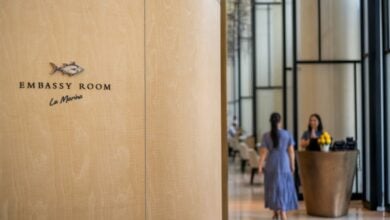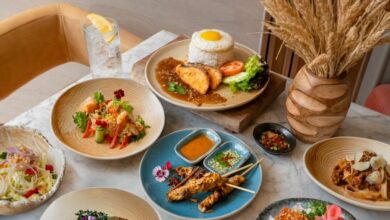Thailand’s Matcha culture: From traditional ceremonies to modern cafes
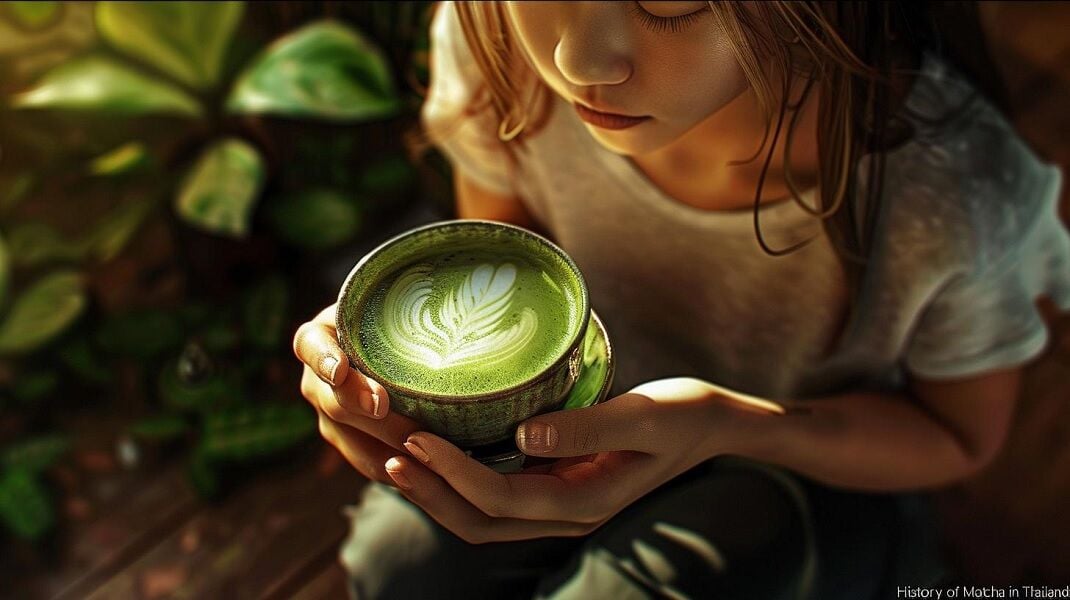
For connoisseurs of Matcha seeking to immerse themselves in the burgeoning Matcha culture within Thailand, a remarkable experience awaits. Thailand, with an emphasis on its capital, Bangkok, has risen as a premier destination for enthusiasts of this variant of green tea, offering a broad selection of venues for the enjoyment of this refined beverage. The city accommodates diverse tastes through its contemporary Matcha bars and vegan-friendly cafes.
In acknowledgement of the growing demand for plant-based alternatives, numerous establishments now offer superior quality Matcha lattes with an option of oat, soy, or almond milk. Ranging from traditional Matcha lattes and invigorating cold Matcha drinks to vegan Matcha ice cream, Bangkok’s assortment is designed to cater to varied palates.
Furthermore, each establishment presents a unique ambience—from captivating views and elegantly curved windows to environments accentuated by Korean pop music—thus enhancing the overall experience. Consequently, whether one is thoroughly acquainted with the realm of Matcha or newly introduced to it, Thailand’s dynamic Matcha scene is poised to create an indelible impression.
History of Matcha in Thailand
Thailand’s engagement with Matcha, a finely ground powder derived from specially cultivated and processed green tea leaves, has undergone significant evolution over the years. Initially brought to the country by Japanese expatriates and tourists, Matcha rapidly garnered favour among the Thai population. This introduction diverged from Thailand’s traditional tea consumption habits, presenting a novel paradigm through its unique preparation methods and versatile culinary uses.
The advent of Matcha in Thailand heralded a new epoch for aficionados of tea. It represented not merely another variant of tea but a transformative movement within the Thai beverage landscape. Establishments such as cafes and tea shops that embraced this trend commenced pioneering endeavours, fusing the deep, umami-rich flavours of Matcha with indigenous ingredients. This creative fusion resulted in an extensive array of Matcha-flavoured beverages and desserts, appealing to local tastes while preserving the genuine character of Japanese Matcha.
Matcha distinguishes itself from other teas available in Thailand not only through its distinctive flavour profile but also via its method of preparation. The ceremonial act of whisking Matcha powder with water until it achieves a frothy consistency has intrigued many Thais, contributing significantly to its popularity. Furthermore, the health advantages linked with Matcha consumption—principally its high antioxidant content—have solidified its appeal among health-oriented individuals.
Presently, inquiries into what constitutes Matcha extend beyond mere curiosity about a type of tea; they delve into an examination of Thailand’s dynamic Matcha culture. From traditional ceremonies to contemporary cafe offerings, Matcha has secured its position as an integral component. Its adaptability and distinct taste continue to influence menu selections throughout Thailand, ensuring a prosperous future for the nation’s Matcha culture.
Benefits of Matcha
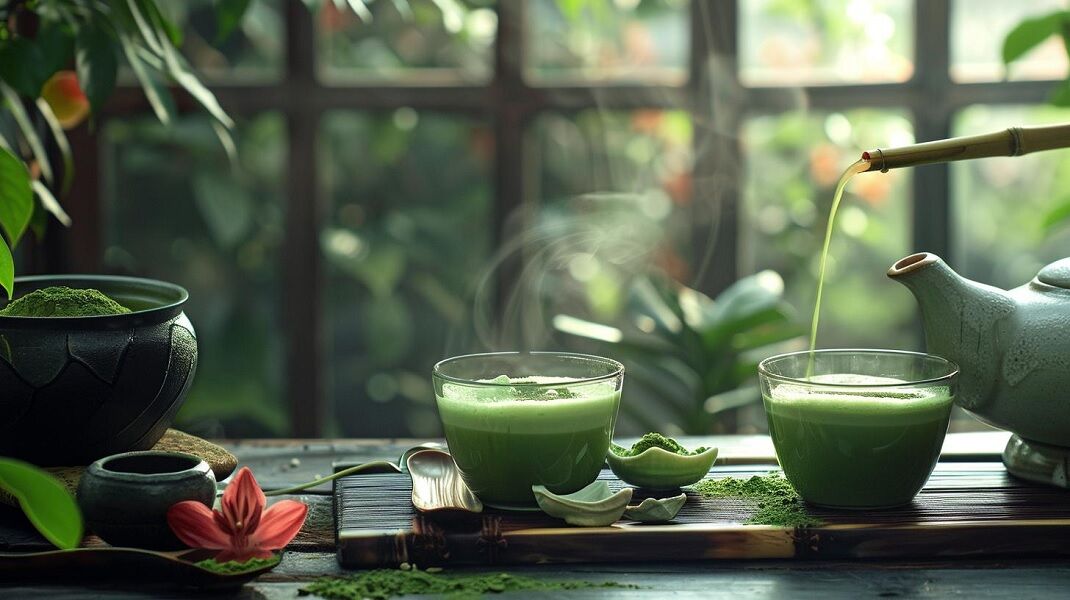
Matcha, a sophisticatedly ground powder derived from specially grown and processed green tea leaves, has experienced a significant surge in popularity throughout Thailand. In this context, it transcends the traditional confines of simple beverages to become an integral component of lifestyle practices. The health and beauty advantages associated with Matcha have garnered extensive recognition.
Health benefits
Matcha stands as a bastion of antioxidants, particularly catechins, which are instrumental in enhancing heart health. The research underscores that catechins present in Matcha can markedly diminish the risk of mortality from heart diseases. A study featured in The American Journal of Clinical Nutrition in 2001 elucidates this relationship, positing a reduced risk for regular consumers of Matcha.
In addition to benefits related to cardiac health, Matcha’s efficacy extends to the prevention of cancer. Its robust antioxidant properties are believed to inhibit the growth of cancer cells. Moreover, Matcha is known to stimulate metabolism, thereby facilitating weight loss—an objective for numerous individuals aspiring towards a healthier way of life. Another notable advantage is its capacity to alleviate anxiety, as supported by scientific studies examining its tranquillizing effects.
For residents of Thailand, various grades of Matcha are accessible, including culinary grade for cooking purposes and ceremonial grade for traditional tea preparation. Irrespective of one’s preference for the type of Matcha in Thailand, its health benefits remain undeniable.
Beauty benefits
The dermatological advantages of Matcha are attributed to its nutrient-dense composition. The considerable quantities of chlorophyll present in Matcha not only support bodily detoxification processes but also protect the skin against pollutants and chemicals, potentially leading to improved clarity and vitality of the skin.
Moreover, the anti-inflammatory attributes found in Matcha, originating from its catechin content, prove beneficial in alleviating acne and reducing erythema. The antioxidants are crucial in combating cancer and cardiovascular diseases and also oppose signs of ageing. This occurs through the protection of the dermis from the harmful effects of free radicals and ultraviolet rays, thus promoting a more youthful appearance.
Popular Matcha varieties in Thailand
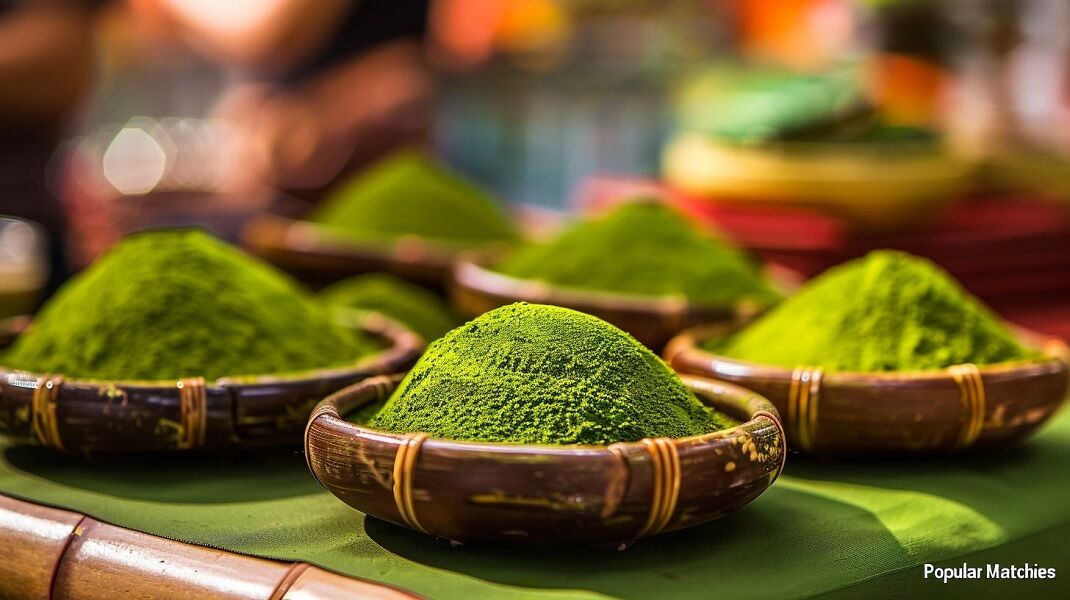
Delving into Thailand’s Matcha landscape reveals a diverse spectrum of offerings, each tailored to distinct preferences and applications, underscoring the adaptability of this green tea. For connoisseurs and novices alike, understanding the nuances of Matcha varieties in Thailand is crucial. Below is an overview of prevalent types that have garnered appreciation from both locals and international visitors.
Ceremonial-grade Matcha represents the zenith of quality within this category. Predominantly used in traditional tea ceremonies, its vibrant green hue and refined flavour profile render it highly desirable. Characterized by its fine grind, it yields a smooth consistency that is unparalleled. Those in pursuit of an authentic Matcha experience will find ceremonial grade Matcha to be unparalleled.
Alternatively, culinary-grade Matcha delivers a stronger flavour profile, making it ideal for culinary applications including cooking and baking. Its flexibility is evident in various creations such as lattes, smoothies, and desserts, where it imparts a unique taste alongside numerous health benefits. Culinary-grade Matcha emerges as the optimal choice for those experimenting with recipes like Matcha-infused cheesecakes or invigorating green lattes.
For individuals seeking convenience without compromising on taste, Matcha Extremist and Starbucks VIA Matcha offer compelling solutions. These products are designed for consumers desiring the rich essence of Matcha absent the conventional preparation techniques. Matcha Extremist introduces an innovative dessert option—an ice cream enveloped in a crispy charcoal shell—while Starbucks VIA Matcha facilitates the enjoyment of this favoured green tea under any condition—be it hot or cold, with or sans milk.
The array of Matcha selections in Thailand encapsulates both traditional elements and modern inclinations. Whether your predilection lies with time-honoured rituals or contemporary ease associated with Matcha consumption, there exists a variant suited to every preference. Venturing into Thailand’s Matcha culture unveils more than merely a beverage; one discovers an entire lifestyle deeply ingrained within its societal fabric.
Where to find the best Matcha in Thailand
Exploring the Matcha scene in Thailand offers you a unique journey through a blend of tradition and innovation. Whether you’re drawn to the high-quality ceremonial grade Matcha for its rich heritage or prefer the robustness of culinary grade for your cooking adventures, there’s something for everyone. Don’t forget the convenience of grab-and-go options like Matcha Extremist and Starbucks VIA Matcha, perfect for those bustling days. Thailand’s Matcha culture invites you to dive deeper into a lifestyle that’s more than just a drink—it’s an experience. So next time you find yourself wandering the streets of Thailand, remember there’s a Matcha out there waiting to be discovered, ready to transform your ordinary day into an extraordinary adventure.
As Thailand embraces a future of culinary innovation and sustainability, the nation is also exploring the potential of edible insects as a source of sustainable protein. This shift not only aligns with global environmental goals but also taps into traditional eating habits, presenting an eco-friendly alternative to conventional meat sources. With a variety of insects now being incorporated into Thai cuisine, from crunchy snacks to protein-rich additives in everyday dishes, Thailand is setting the stage for a more sustainable, nutritious future, further enriching its diverse culinary landscape.




























